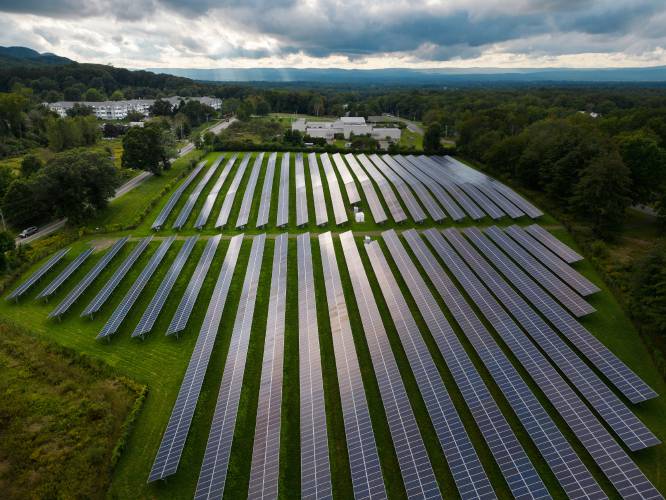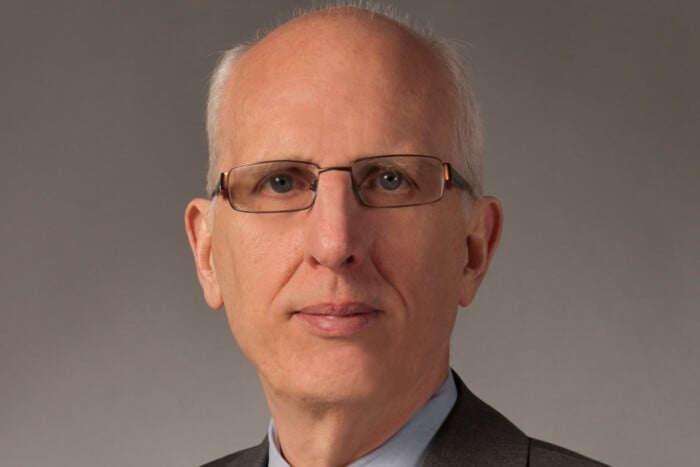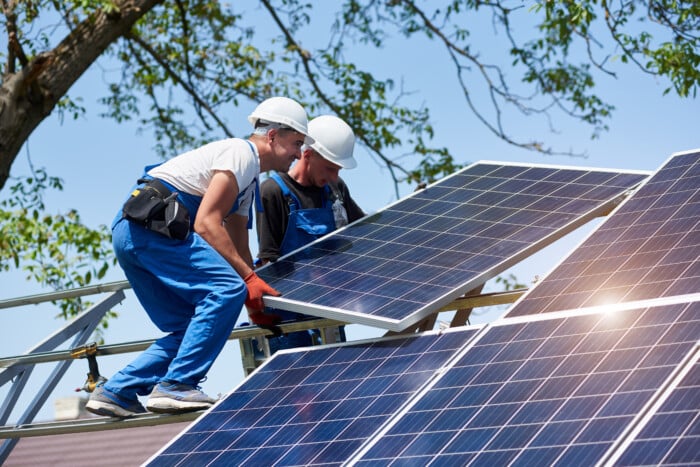
A field of solar panels along West Bay Road in Amherst, Mass. (Photo by Dan Little/Greenfield Recorder)
The folks who run New England’s power grid think New Hampshire is going to see big changes in the creation and the use of electricity over the next decade, with a ton of new solar panels feeding a ton of new heat pumps and roughly 200,000 more electric vehicles.
That being said, the way we make and use energy is changing so fast that predicting the future of power has gotten more difficult than ever.
“Most regular folks are not aware of how fast the transition is happening,” said Sam Evans-Brown, executive director of Clean Energy New Hampshire, an advocacy group.
Prices of solar power and battery storage are falling faster than expected and those technologies are coming online much more quickly than had been anticipated. Wind power is also growing fast, although that’s less of a factor in New England unless the offshore wind industry suddenly accelerates.
On the demand side, the use of electric heat pumps instead of oil- or gas-fired boilers is also rising sharply, while the number of electric vehicles on the road continues to increase, although the growth is not as sharp as some optimists had hoped.
As a result, long-term forecasts of how and when and how much energy will be made and used should be eyed with a very large grain of salt.
The recent predictions from ISO-New England come in their annual update of estimates for the next 10 years, called CELT for Capacity, Energy, Loads and Transmission. They are used by regulators, businesses and planners to help make decisions about the present and future of the power grid.
“This gets to one of the core debates about the energy transition. … Is it more like the transition from wood to coal, or is it more like the transition from landlines to cellphones?” said Evans-Brown. The world’s change in fuel used for heating took several decades, but as we all know, the triumph of cellphones took much less time.
This article is being shared by partners in The Granite State News Collaborative. For more information, visit collaborativenh.org.
















